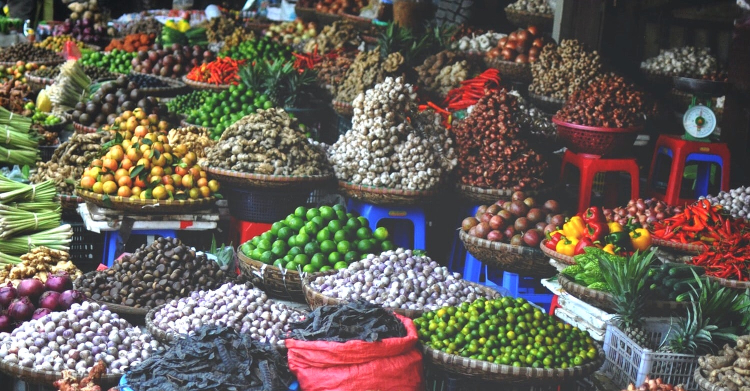Experts discuss nutritious diets for all

During a panel discussion organized by Food Tank, the Global Alliance for the Future of Food, and the International Fund for Agricultural Development (IFAD), experts discuss strategies that enable the production of accessible and nutrient-dense diets.
The event is part of a series of panels with themes inspired by Global Alliance’s Seven Calls to Action to transform the food system. Moderated by Ruth Richardson, Executive Director of the Global Alliance and Danielle Nierenberg, President of Food Tank, each conversation features members of the United Nations Food Systems Champions Network.
The seventh Call to Action focuses on promoting nutrient-dense, whole food diets underpinned by diversified food production adapted to different micro-climates and socio-cultural contexts.
Panelists include Dorit Adler, President of the Israeli Forum for Sustainable Nutrition; Mike Nkhombo Khunga; Youth Leader for Nutrition Programme at Scaling Up Nutrition Movement Civil Society Network (SUN CSN); and Rick White, President and CEO of the Canadian Canola Growers Association.
The panelists begin by addressing the ways that the COVID-19 pandemic has underscored the need for universal access to not just sufficient calories, but nutrient-dense diets.
Adler points out that many of the most severe cases of COVID-19 were linked with diet-related illnesses such as diabetes and hypertension.
White believes that it is important to use the pandemic as a learning opportunity so that communities are prepared for the next crisis and can avoid many of these issues.
Resiliency, he says, “is extraordinarily key to ensure people get fed nutritious food even through disruption.”
But the panelists argue that the transition to food systems that support healthy diets will require a number of key changes.
White says that one of the most important steps is to engage eaters. “One of the main drivers…is consumer awareness, consumer education, and consumer preferences.
The private sector is good at responding to market demand,” he tells Food Tank. Armed with knowledge, White says that consumers can effectively advocate for healthier options from companies.
But Adler believes that education, while important, will never be enough on its own, arguing that the dominant food system is too powerful. “Education cannot confront the massive marketing and advertising [of companies],” Adler tells Food Tank.
Instead, Adler hopes to see policymakers prioritize changes to regulation through the implementation of taxes and subsidies. She believes that these can dissuade consumers from purchasing unhealthy foods and push them to embrace more nutrient-dense options.
Khunga adds that the food system must prioritize opportunities for youth. “You can’t talk about resilience if you’re not thinking about the future generation,” Khunga tells Food Tank. He believes that young farmers can access resources, including capital and technology, to produce diverse diets for local communities.
Adding to Khunga’s point, White tells Food Tank that it is essential to support farmers and help ensure their livelihood to build a sustainable food system. “If farmers are in good economic shape, that allows them to be able to implement environmentally sustainable practices.”
Despite the obstacles, Adler says she is hopeful for the future of the food system and what stakeholders can accomplish. “We are optimistic even though we have many challenges ahead.”
Food Tank

